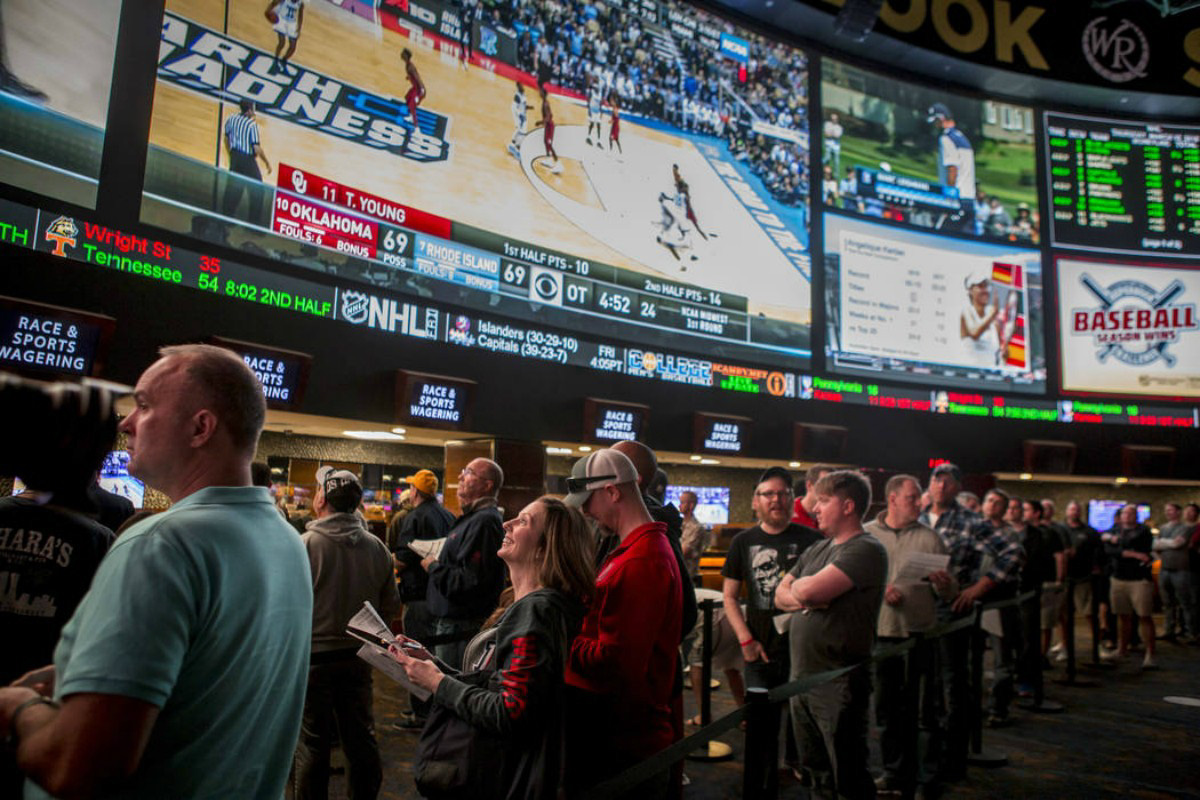 “A lot of individuals just think, ‘Oh, well, it’s just student-athletes.’ You need to train your sports information directors. You need to train and educate your athletic trainers. Anyone who’s tied to or privy to information needs to be educated.” – Eric Nepomuceno, UNLV Senior Associate Athletics Director for Compliance
“A lot of individuals just think, ‘Oh, well, it’s just student-athletes.’ You need to train your sports information directors. You need to train and educate your athletic trainers. Anyone who’s tied to or privy to information needs to be educated.” – Eric Nepomuceno, UNLV Senior Associate Athletics Director for Compliance
In May 2018 the U.S. Supreme Court deemed the federal law that barred states from establishing regulated sports wagering markets unconstitutional — the Professional and Amateur Sports Protection Act.
Now, if it so chooses, any state may now enter the fray, and experts note sports wagering’s growth is moving at a pace without parallel in the gambling industry. Research firm Eilers & Krejcik Gaming estimates:
$291.5 billion -Total projected amount that would be bet annually in the United States if sports wagering was to expand to all 50 states.
$44 million – Estimate of how many Americans would participate in a 50 state-regulated market that includes retail and online products.
$497 million – Total revenue generated by regulated U.S. sports betting in 2018.
More than $800 million – Total revenue projected to be generated by regulated U.S. sports betting in 2019.
49% – Proportion of U.S. population that will have access to some form of regulated sports betting by the end of 2022.
The NCAA Board of Governors last year established an ad hoc committee on sports wagering. Committee members are evaluating whether relevant NCAA rules need to change, how best to educate athletics departments and student-athletes about compliance and problem gambling, and how to ensure integrity of competitions as the market expands.
With roughly 30 states poised to have some form of regulated sports betting in place by 2022, and wagering on college football and basketball already accounting for roughly a quarter of the regulated market, NCAA officials are concerned important protections will be forgotten in the race for revenue.
Experts agree that, more than any NCAA rule change or campus policy, providing consistent education to every student-athlete and staff member in an athletics department is the most effective way to ensure compliance with NCAA sports wagering rules and to mitigate risks of problem gambling or integrity issues.
Coordinate with Your Campus: Though Kentucky has yet to pass a law permitting sports wagering, Rachel Baker, the University of Kentucky’s executive associate athletics director for compliance and ticket operations, has thought at length about the subject given her previous job spearheading the NCAA’s efforts to educate members about sports wagering. She says her campus has kept the athletics department apprised of developments within state government.
Additionally, the athletics department has spoken with medical professionals on campus about adding questions regarding gambling behaviors to the mental health screening that is part of the student-athlete physical. “Keeping it on everybody’s mind is what I’m trying to do right now,” she says.
Know Your Local Industry: If sports wagering is legal in the state your school calls home, reach out to the relevant regulator — whether it be the state lottery or a separate gaming commission — and prominent local gambling operators. In the end, regulators and gambling businesses have the same interest in preserving integrity as colleges do: Athletics departments want to protect their players and programs, operators want to protect their license, and regulators want to protect the market itself.
Follow the Money: As part of its campus-wide efforts, Missouri has armed the financial aid and cashier’s offices with information detailing problem gambling warning signs. Students who repeatedly make trips for emergency loans for an array of reasons, for instance, might warrant a referral for professional help.
The NCAA and professional sports leagues are lobbying Congress to adopt federal legislation that establishes baseline standards for state markets. Among the options: a minimum age of 21 to register to bet on sports; mandatory information-sharing among operators, law enforcement and sports leagues; and requiring casinos to forbid bets from those involved in athletics by cross-checking gamblers against lists furnished by the NCAA, conferences or professional leagues.
This story first appeared in The NightCap, CollegeAD’s evening newsletter. The NightCap delivers the day’s college athletics news in simple bullet points, giving you what you need to know in just a few lines. Get The NightCap today.
